The Director of QCGC Research is Professor Andreas Obermair who leads and develops the unit to produce meaningful research outcomes. Professor Obermair is an innovative and skilled gynaecologic oncologist, surgical teacher and consumer advocate, whose efforts, along with the research team, have been rewarded.
AAHMS Fellow Achievement | 2024
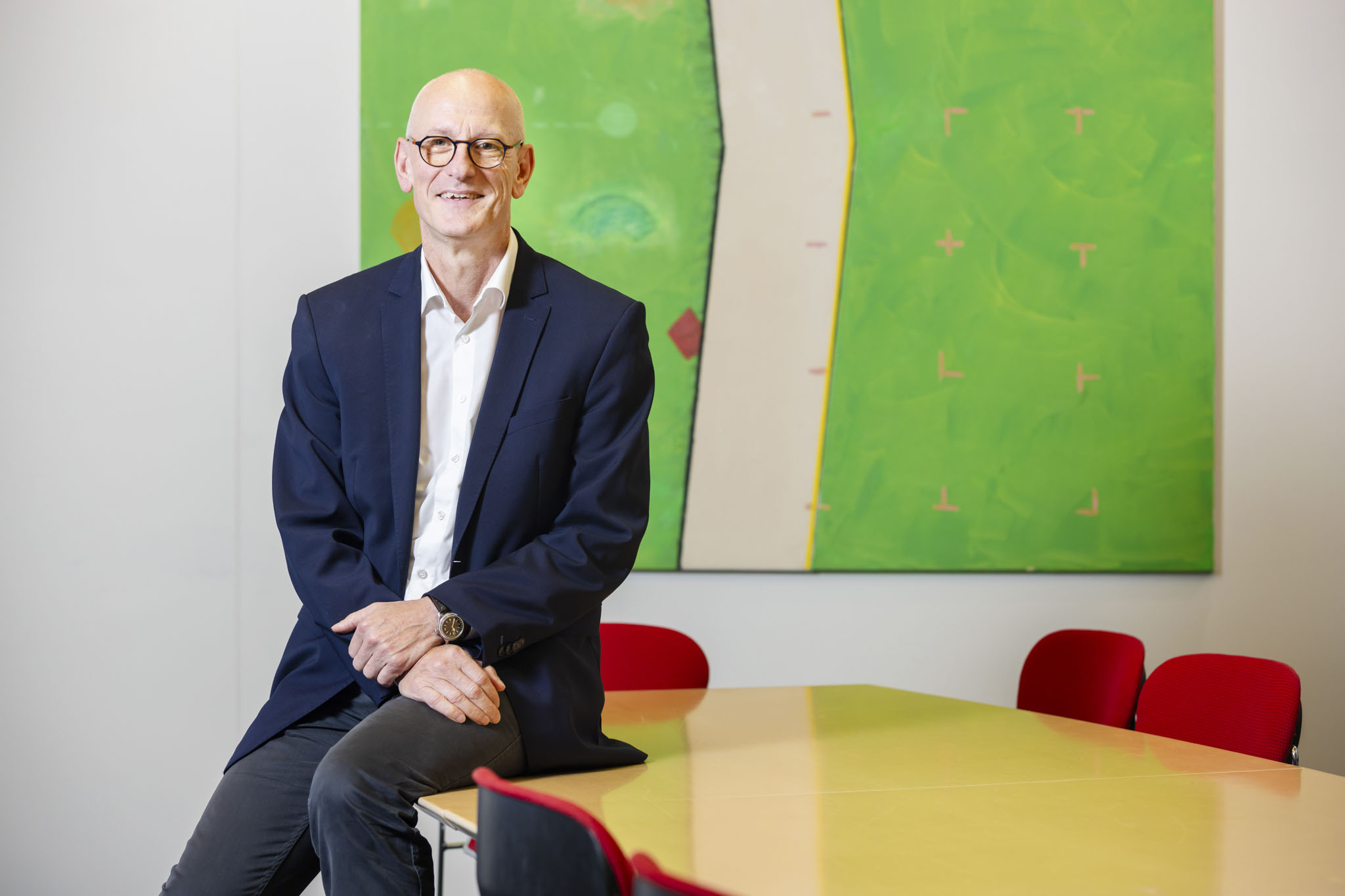 Congratulations to Professor Andreas Obermair for being elected as an AAHMS Fellow! As a leading gynaecological oncologist, surgical teacher and Director of QCGC Research, Professor Obermair has dedicated over 21 years to improving outcomes for women affected by gynaecological cancers across Australia.
Congratulations to Professor Andreas Obermair for being elected as an AAHMS Fellow! As a leading gynaecological oncologist, surgical teacher and Director of QCGC Research, Professor Obermair has dedicated over 21 years to improving outcomes for women affected by gynaecological cancers across Australia.Centre of Research Excellence (CRE) | 2024
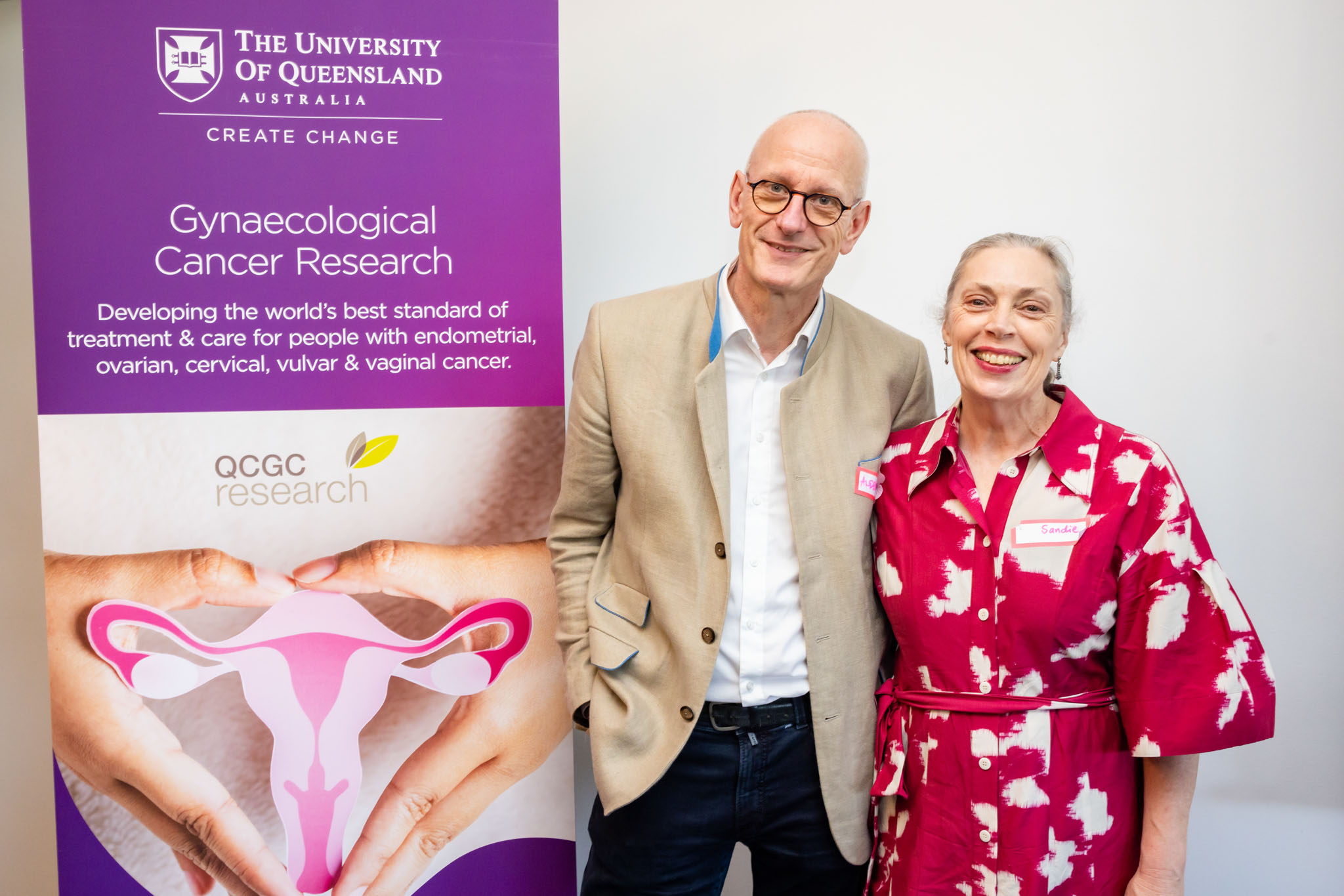 We’re excited to announce that QCGC Research has been awarded a $3 million Centre of Research Excellence (CRE) grant from the National Health and Medical Research Council (NHMRC) to focus on improving the quality of life for gynaecological cancer patients and survivors. Led by Director of QCGC Research Professor Andreas Obermair, the new CRE—ALIVE WELL—will address the significant gaps in treatment and follow-up care of gynaecological cancers. For more information, read our announcement here.
We’re excited to announce that QCGC Research has been awarded a $3 million Centre of Research Excellence (CRE) grant from the National Health and Medical Research Council (NHMRC) to focus on improving the quality of life for gynaecological cancer patients and survivors. Led by Director of QCGC Research Professor Andreas Obermair, the new CRE—ALIVE WELL—will address the significant gaps in treatment and follow-up care of gynaecological cancers. For more information, read our announcement here.
Tony McCartney Surgical Innovation Prize | 2023
Congratulations to Professor Andreas Obermair on being awarded the prestigious Tony McCartney Surgical Innovation Prize at the Australian Society for Gynaecological Oncologists (ASGO) Annual Scientific Meeting. This award recognises the best presentation given at the meeting that describes an innovative surgical technique or procedure, and was presented to Andreas for his Evidence for a Fundamental Overhaul of Surgical Vulval Cancer address. The award was particularly significant to Andreas as Tony McCartney was an important mentor in his early surgical/research career.
From left - Prof Andreas Obermair, Dr John Miller, Assoc Prof Peter Sykes
NHMRC Partnership Grant | 2022 - 2025
 On 22 February 2022, the Australian Government announced that QCGC Research is one of five recipients awarded an NHMRC Partnership grant in its latest funding round. We will receive $739,425 from the Federal Government and $260,000 from Cherish. This grant provides a welcome boost to our feMMe Molecular study focusing on a non-surgical treatment alternative for endometrial cancer.
On 22 February 2022, the Australian Government announced that QCGC Research is one of five recipients awarded an NHMRC Partnership grant in its latest funding round. We will receive $739,425 from the Federal Government and $260,000 from Cherish. This grant provides a welcome boost to our feMMe Molecular study focusing on a non-surgical treatment alternative for endometrial cancer.
To find out further details on this study, read our March 2022 blog here.
NHMRC Investigator Grant | 2021- 2025
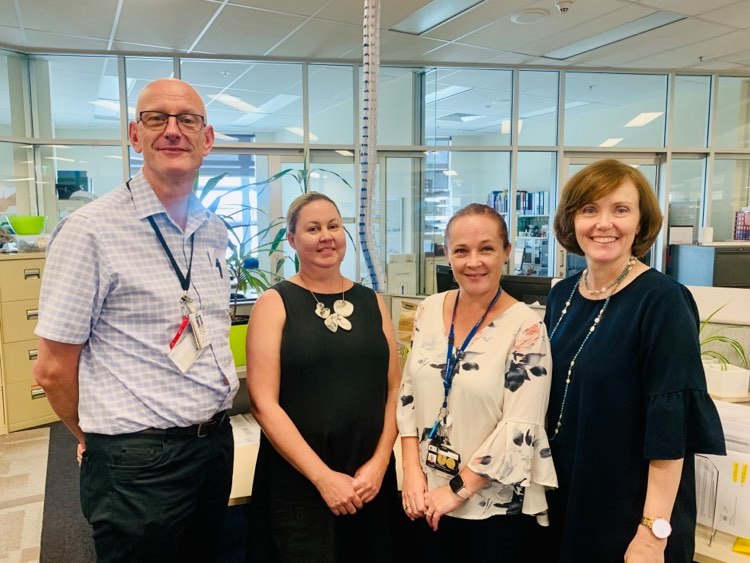 Professor Obermair is an innovative and skilled gynaecologic oncologist, surgical teacher and consumer advocate whose efforts have been rewarded yet again. His international leadership and research impact was recently acknowledged when awarded a $2.5 million Investigator Grant (funded by the National Health and Medical Research Council from 2021 to 2025) to improve the treatment options and outcomes for women with endometrial cancer.
Professor Obermair is an innovative and skilled gynaecologic oncologist, surgical teacher and consumer advocate whose efforts have been rewarded yet again. His international leadership and research impact was recently acknowledged when awarded a $2.5 million Investigator Grant (funded by the National Health and Medical Research Council from 2021 to 2025) to improve the treatment options and outcomes for women with endometrial cancer.
Read on here for more information on the aim of this project.
IGCS Excellence in Teaching Award | 2021
 Professor Obermair is being honoured with the IGCS Excellence in Teaching Award for his lifelong commitment to improve the care of women affected by gynecological cancer through investigation, collaboration, and teaching.
Professor Obermair is being honoured with the IGCS Excellence in Teaching Award for his lifelong commitment to improve the care of women affected by gynecological cancer through investigation, collaboration, and teaching.
The Excellence in Teaching Award recognizes individuals deeply committed to the profession whose work and accomplishments set a standard of excellence. This award recognizes the importance of teaching as an integral part of women’s cancer care and the lasting impact of educators to shape and inspire future generations of clinicians and researchers.
UQ Award for Excellence in Service | 2019
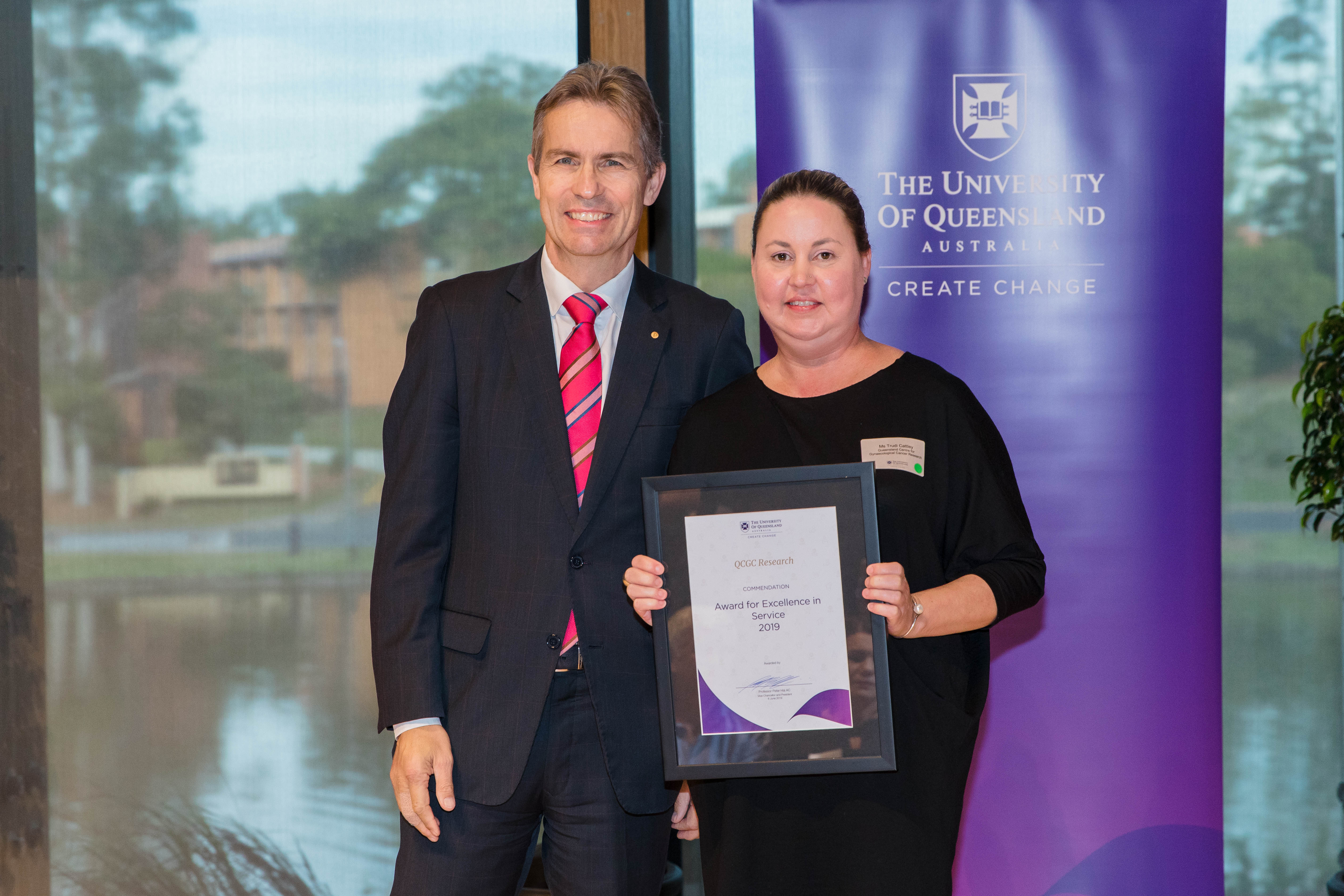 In 2018, UQ's Queensland Centre for Gynaecological Cancer Research (QCGC) published one of the New England Journal of Medicine's most notable articles, in which it reported that women with cervical cancer are better off receiving open rather than laparoscopic surgery. QCGC Research focuses on conducting surgical clinical trials in the field of gynaecological cancer but also performing ground-breaking work outside the conventional clinical trials framework.
In 2018, UQ's Queensland Centre for Gynaecological Cancer Research (QCGC) published one of the New England Journal of Medicine's most notable articles, in which it reported that women with cervical cancer are better off receiving open rather than laparoscopic surgery. QCGC Research focuses on conducting surgical clinical trials in the field of gynaecological cancer but also performing ground-breaking work outside the conventional clinical trials framework.
For more information read the following blogs/articles:
- Laparoscopic hysterectomies not the answer for women with cervical cancer
- Minimally invasive surgery recommended over hysterectomies
- New England Journal of Medicine article
By conducting high quality research and influencing clinical practice standards, they are servicing UQ and its community in pursuit of excellence. Member of the QGCC Research team were acknowledged: Ms Vanessa Behan, Ms Emma Capaldi, Ms Trudi Cattley, Ms Lisa Harrold, Ms Kerry Millgate, Ms Danielle Mills, Professor Andreas Obermair, Professor David Paterson, Ms Vanessa Taylor.
Jeannie Ferris Cancer Australia Recognition Award | 2017
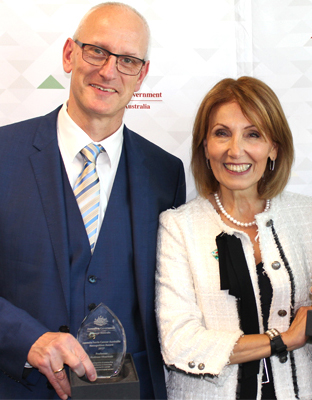 University of Queensland Professor Andreas Obermair has been presented with the 2017 Jeannie Ferris Cancer Australia Recognition Award for his contributions to improving healthcare for women diagnosed with gynaecological cancer.
University of Queensland Professor Andreas Obermair has been presented with the 2017 Jeannie Ferris Cancer Australia Recognition Award for his contributions to improving healthcare for women diagnosed with gynaecological cancer.
Professor Obermair has championed the use of minimally invasive surgical procedures over traditional approaches. His recent research has shown that laparoscopic keyhole surgery is more beneficial than open abdominal hysterectomy for women in need of treatment for early stage gynaecological cancers. The study showed adopting minimally invasive surgery as a preferred standard of care would significantly reduce the number of patients developing severe surgical complications.
The outcome had a major effect on the world-wide use of laparoscopic surgery for patients with endometrial cancer and is estimated to save the health care system $3000 for each operation that can be done laparoscopically since the results of the trial were published in JAMA in 2017. Read more here on the QCGC Research Blog or refer to the full article here.
MetroNorth Research Excellence Award Winner | 2017
QCGC Research was announced the winner of the Clinical Research Award at the MetroNorth Research Excellence Awards 2017 for our work to develop less invasive surgery techniques for endometrial cancer.
The outcome had a major effect on the world-wide use of laparoscopic surgery for patients with endometrial cancer and is estimated to save the health care system $3000 for each operation that can be done laparoscopically since the results of the trial were published in JAMA in 2017. Read more here on the QCGC Research Blog or refer to the full article here.
It is humbling to reflect on how our research is changing cancer treatment and to recognise the people who have made this possible – from our donors to our patient volunteers and researchers.
